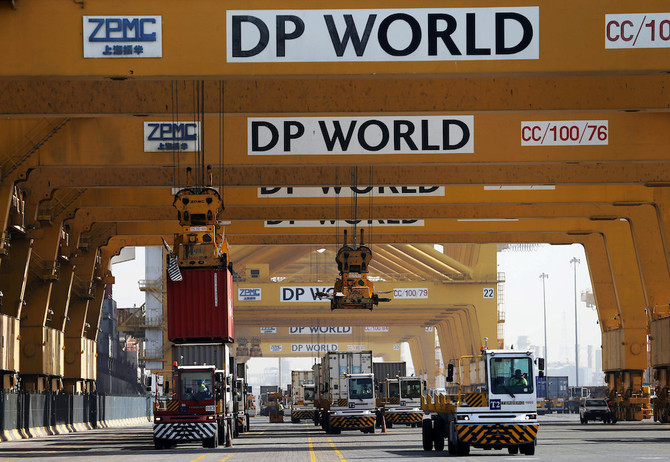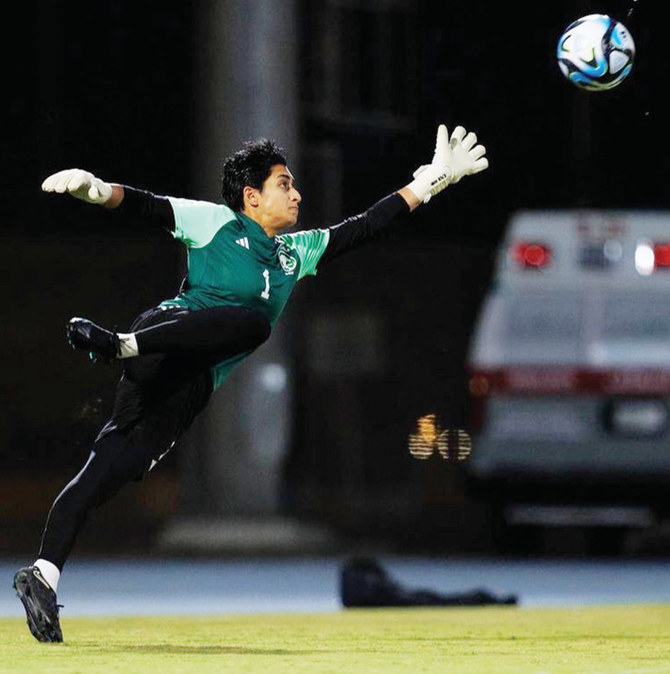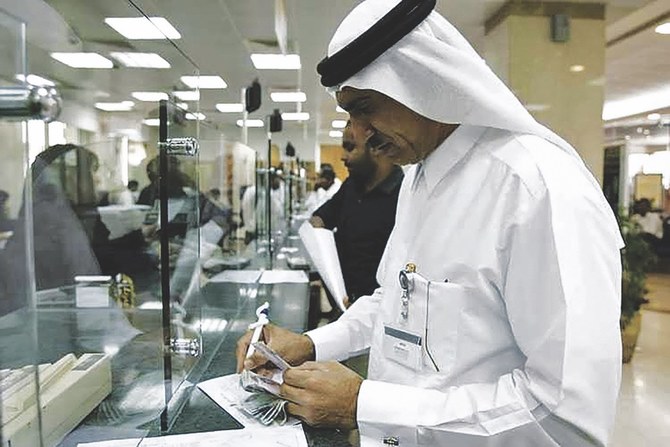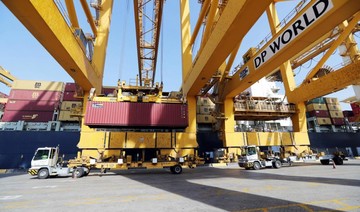NEW DELHI: India’s antitrust watchdog has ordered Dubai’s DP World and Denmark’s A.P. Moller-Maersk and to withdraw certain customer adviseries which it said could hamper growth of the country’s largest container port in Mumbai, a document seen by Reuters showed.
The Competition Commission of India (CCI) last year ordered a probe into suspected antitrust violations by DP World and Maersk units at the terminals they operate at state-owned Jawaharlal Nehru Port Trust (JNPT).
Handling 66 million tons of cargo in the last fiscal year to March, JNPT is critical to India’s international trade. The port handles more than half of India’s traffic in shipping containers each year.
The probe was ordered as the CCI found merit in a complaint filed by Singapore’s PSA International, which alleged the rival duo had created barriers to hinder the growth of PSA’s terminal by colluding on certain charges they levy at the port.
Though the terminal operators handle each other’s containers to help boost the port’s efficiency, PSA had alleged that DP World and Maersk last year issued adviseries aimed at discouraging port users from sending PSA’s containers to their terminals.
In an order issued by the CCI on Jan. 15, the watchdog ordered Maersk and DP World units to withdraw those adviseries, saying it “smacks of anti-competitive” conduct.
The adviseries, if not withdrawn, would cause “irretrievable damage or losses” not only to PSA, and would not augur well for the port’s development, according to the order. It has not been made public.
“This is likely to generate unwarranted uncertainty, chaos, discontent and anxiety among shipping lines and customers,” the CCI said.
The order is only an interim measure, and the wider probe continues.
A DP World spokesperson said the company had not received any such order from the Indian watchdog, but it was “committed to ensuring” it complies with all laws.
A.P. Moller-Maersk, the world’s biggest container shipping group, did not respond to queries. PSA, which is owned by Singapore government-owned investment fund Temasek Holdings, declined to comment.
The antitrust dispute at the JNPT is based on so-called inter-terminal transfers.
Under the system, freight trains arriving at JNPT typically carry containers destined for several terminals, but stop at just one that handles all the cargo on a given day. Other operators then collect their containers by truck for loading at their own terminals. A similar procedure is followed, in reverse, when imported containers are unloaded.
DP World’s advisory had said the inter-terminal operations with PSA were “inefficient and unviable.” Maersk had said its terminal “shall not be responsible” for handling containers to and from PSA-terminal bound trains.
Both the companies denied PSA’s allegations while arguing to the CCI that the adviseries were based on “commercial justifications,” the order said.
Units of Maersk, DP World and PSA operate four of the JNPT port’s five terminals, with the fifth owned by the government. The PSA terminal, inaugurated in February, is planned to be the largest, expected to nearly double JNPT’s capacity.
India watchdog orders DP World unit to withdraw some notices to clients at Mumbai port
India watchdog orders DP World unit to withdraw some notices to clients at Mumbai port

- India has been investigating antitrust violations at Mumbai port
- DP World, Maersk unit asked to withdraw some customer adviseries
Saudi women tackling, kicking their way into football

- Ministry of Sports has reported a 150 percent increase in women’s participation
RIYADH: Women are finding new territories in various industries as the Kingdom sets diversity and inclusion goals, and football is no different.
There are currently 1,100 female football players registered with Saudi clubs through the leagues, three regional training centers, and four active national teams.
Today, the Women’s Football Department focuses on various areas of grassroots development, like five upcoming local competitions including the Premier League.
The head of the Saudi Arabian Football Federation’s Women’s Football Department, Aalia Al-Rasheed, told Arab News: “Today, we’re witnessing with Vision 2030 a whole transformation when it comes to the country in general. The Ministry of Sports reported a 150 percent increase in women’s participation (since 2015). The game is growing everyday."

Al-Awwal Park Stadium lit up with fireworks Sunday night as Al-Nassr were crowned champions against Al-Ittihad, ending their season on a high with a 1-0 victory.
As the 2023-2024 Premier League concludes, the spirit of celebration still lingers in the air. Female trailblazers in the football sector came together on Monday to champion the incredible women of the Kingdom who are breaking boundaries in the realm of football at Hiwar, PepsiCo’s signature annual event for women empowerment.
In the 2024 Hiwar, hosted in collaboration with the SAFF’s Women’s League, industry drivers spoke about their experiences in pushing the boundaries of women inclusion in the sport, during a panel discussion that evening moderated by Mo Islam, featuring Al-Rasheed alongside Al-Nassr’s goalkeeper Sara Khalid, Al-Ittihad’s women’s team head coach Kelly Lindsey, and PepsiCo.’s senior marketing manager, Anfal Al-Duhilan.
Khalid, one of the Kingdom’s star female football players, reflected on her team’s first-ever international victory last year, winning the premier league twice in a row, and her current, vivid reality in leading the industry into international territory.
But when Khalid left her day job to pursue a football career, she knew she had an example to set and responsibility on her back.
She told Arab News: “Today, I can say I’m one of the first players to represent the national team and my country on an international level, and now with us winning the league and participating in the AFC champion’s league, it’s definitely a huge weight on my shoulders.
“Every decision I have to make must be made thoughtfully and in consideration of everything else, and to always inspire and be inspired by the people around me.”
As a coach, Lindsey said the top struggle is creating equilibrium within a team. Her coaching approach blends physical preparation with cultural understanding, acknowledging the importance of nutrition, sports psychology, and family values within Saudi leagues.
While some Al-Ittihad team members struggled to even pass the ball five times just last summer, they have now managed to compete in the first level of the Saudi football pyramid.
She commended Saudi Arabia’s massive investment into women’s sports, with the SAFF allocating SR49.9 million ($13 million) to women’s football cross-country programs just last year.
Lindsey told Arab News: “By investing in sports, women are not only out in society, they are front and center for everyone to watch, judge, and support.
“The dialogue will change about everything that needs to happen around them so that more women can do their passion, live their passion in work and music and art and culture and sport. It will create a natural dialogue and a push for more infrastructure for women to succeed.”
Last October, this support was bolstered even further as PepsiCo. and the SAFF announced that the multinational’s subsidiary, Lay’s potato chips, will sponsor the 2023-24 Saudi Women’s Premier League.
“Our sponsorship is in alignment with the company’s vision, which is to basically drive diversity and inclusion, aligning with the Saudi 2030 Vision. We wanted to make a difference and really give every single Saudi female the opportunity to pursue her dreams in any field and to continue empowering and supporting them,” said Al-Duhilan.
Saudi authorities plan to boost assets under management to 29.4% of GDP in 2024

- Capital Market Authority plans to accelerate the pace of listings by welcoming 24 new companies
RIYADH: Saudi Arabia aims to enhance its stock exchange appeal to foreign investors, targeting 17 percent ownership of free float shares by 2024, a new report has revealed.
According to the 2023 Financial Sector Development Program document, the Saudi Capital Market Authority plans to boost assets under management to 29.4 percent of gross domestic product in 2024 by increasing the investment environment and attracting more investors.
The report, published annually, highlights the achievements in the financial sector, particularly the Kingdom’s ongoing progress in competitiveness indicators related to the capital market, as stated by Mohammed Al-Jadaan, minister of finance and chairman of the FSDP.
Commenting on the development of the financial sector, Al-Jadaan emphasized the importance of innovation and investment in talent and technology.
“We have placed innovation and investment in both talent and technology at the top of our priorities, because we recognize the importance of building a dynamic financial environment that allows companies — especially startups — to flourish and succeed,” the minister stated.
In line with its commitment to facilitating financing in the capital market, the CMA also plans to accelerate the pace of listings by welcoming 24 new companies in 2024.
Moreover, there will be a focus on supporting the development of new and promising sectors, with a target of having micro and small enterprises account for 45 percent of total listings.
Another area of emphasis is the deepening of the sukuk and debt instruments market, with the goal of increasing the debt-to-GDP ratio to 22.1 percent by the end of 2024. These measures aim to provide diverse financing options for companies and further stimulate economic growth.
“The capital market ecosystem continued its efforts to contribute to developing the financial sector and achieving the Saudi Vision 2030,” stated Mohammed El-Kuwaiz, chairman of the CMA.
“By approving rules for foreign investment in securities and streamlining regulatory procedures, we have witnessed a significant increase in foreign investments in the capital market, reaching SR401 billion ($106.9 billion),” El-Kuwaiz added.
The Saudi Central Bank also reaffirmed its commitment to adhering to international standards and best practices to enhance the strength and stability of the financial sector.
Initiatives such as developing digital solutions for supervising the financial sector and enabling local and international FinTechs demonstrate the Kingdom’s dedication to embracing technological advancements.
Furthermore, the Financial Academy unveiled its new strategy for 2024-2026, focusing on enhancing human capabilities in the financial sector through training programs and professional certifications.
The academy aims to increase the number of trainees and improve the quality of its services to meet the evolving needs of the industry.
The 2023 FSDP report highlighted significant progress across sectors like fintech and digital banking.
The Kingdom saw a surge in fintech companies, surpassing 2023 targets with 216 in operation and launching two digital banks.
Saudi Arabia claimed the top spot in the Corporate Boards Index among G20 nations and secured second place in various indices. Foreign companies relocated headquarters to the Kingdom, deepening the capital market.
Moody’s, Fitch, and S&P Global Ratings revised Saudi Arabia’s outlook to “Positive” and affirmed its “A1” and “A+” credit ratings, citing fiscal policy development, economic reforms, and structural improvements.
Saudi Arabia led venture investments in the Middle East & North Africa, securing 52 percent of total investments in 2023, and allocated SR10 billion to support small and medium enterprises across economic activities and regions in the first half of the year.
Kenya, Tanzania brace for cyclone as heavy rains persist

- The two East African neighbors are still recovering from last weeks devastating floods
- Kenya reported about 200 dead while Tanzaia said at least 155 died in floods and landslides
NAIROBI: Kenya and Tanzania were bracing Thursday for a cyclone on the heels of torrential rains that have devastated East Africa, killing more than 350 people and forcing tens of thousands from their homes.
In addition to claiming 188 lives in Kenya since March, the floods have displaced 165,000 people, with 90 reported missing, the interior ministry said, as the government warned citizens to remain on alert.
“Crucially, the coastal region is likely to experience Cyclone Hidaya, which will result in heavy rainfall, large waves and strong winds that could affect marine activities in the Indian Ocean,” the office of Kenyan President William Ruto said.
Neighbouring Tanzania, where at least 155 people have been killed in flooding and landslides, is also expected to feel the force of Hidaya.
“The presence of Hidaya Cyclone... is expected to dominate and affect the weather patterns in the country including heavy rain and strong winds in some Regions near Indian Ocean,” Tanzania Red Cross Society said on X, formerly Twitter.
Kenya’s capital Nairobi is among the areas expected to suffer heavy rains over the next three days, the Kenya Meteorological Department said on X, warning of strong winds and large ocean waves along the country’s coastline.
The forecaster urged residents to be vigilant for flash floods and lightning strikes, adding that strong winds could “blow off roofs, uproot trees” and cause other damage.
The heavier than usual rains have also claimed at least 29 lives in Burundi, with 175 people injured, and tens of thousands displaced since September last year, the United Nations said.
Earlier this week Ruto announced he was deploying Kenya’s military to evacuate everyone living in flood-prone areas.
In a bulletin released Thursday evening, the interior ministry ordered anyone living close to major rivers or near 178 “filled up or near filled up dams or water reservoirs” to vacate the area within 24 hours, warning that they would otherwise face “mandatory evacuation for their safety.”
The devastation has also affected Kenya’s tourism sector — a key economic driver — with some 100 tourists marooned in the famed Maasai Mara wildlife reserve on Wednesday after a river overflowed, flooding lodges and safari camps.
Rescuers later managed to evacuate 90 people by ground and air, the interior ministry said.
The area is currently inaccessible with bridges washed away, Narok West sub-county administrator Stephen Nakola told AFP, adding that about 50 camps in the reserve have been affected, putting more than 500 locals temporarily out of work.
There are no fatalities but communities living around the area have been forced to move away.
“Accessing the Mara is now a nightmare and the people stuck there are really worried, they don’t have an exit route,” Nakola said, adding that waterborne diseases were likely to emerge.
“I am worried that the situation could get worse because the rains are still on.”
In the deadliest single incident in Kenya, dozens of villagers were killed when a dam burst on Monday near Mai Mahiu in the Rift Valley, about 60 kilometers (40 miles) north of Nairobi.
The interior ministry said 52 bodies had been recovered and 51 people were still missing after the dam disaster.
Opposition politicians and lobby groups have accused Ruto’s government of being unprepared and slow to respond to the crisis despite weather warnings.
“Kenya’s government has a human rights obligation to prevent foreseeable harm from climate change and extreme weather events and to protect people when a disaster strikes,” Human Rights Watch said Thursday.
The United States and Britain have issued travel warnings for Kenya, urging their nationals to be cautious amid the extreme weather.
The devastation has sparked an outpouring of condolences and pledges of solidarity from all over the world, including from Pope Francis and UN Secretary General Antonio Guterres.
The rains have been amplified by the El Nino weather pattern — a naturally occurring climate phenomenon typically associated with increased heat worldwide, leading to drought in some parts of the world and heavy downpours elsewhere.
Islamic finance industry projected to grow in 2024-2025

- Global sukuk issuance likely to reach around $170 billion in 2024
RIYADH: The Islamic finance industry is projected to grow globally in 2024-2025 with total assets likely to witness single-digit growth driven by economic diversification efforts, a report said.
It predicted that sukuk issuance globally would hover between $160 billion and $170 billion in 2024, representing a steady momentum from $168.4 billion in 2023 to $179.4 billion in 2022.
In its latest analysis, credit rating agency S&P Global highlighted that the industry grew by 8 percent and 8.2 percent in 2023 and 2022, respectively, stemming from growth in banking assets and the sukuk industry.
According to the US-based firm, Islamic banking assets grew 56 percent in 2023 compared to 72 percent in 2022.
Financial institutions across the Gulf Cooperation Council region accounted for 86 percent of the reserve increase in 2023, with Saudi Arabia becoming the chief contributor, having generated 56.7 percent of the maturation.
“We expect the implementation of Vision 2030 and growth in corporate and mortgage lending to continue supporting the Islamic finance industry over the next 12-24 months. In addition, the UAE showed a stronger contribution in 2023 thanks to the good performance of the non-oil sector,” the report noted.
It added: “Elsewhere, we observed some growth, particularly in Turkiye and Indonesia. The performance in Malaysia and Turkiye was somewhat tempered by the depreciation of the ringgit and the lira.”
According to the US-based firm, the issuance of this Shariah-compliant debt product began on a strong footing in 2024, with Saudi Arabia becoming a key contributor to the performance.
“The drop in issuance volumes in 2023, which mainly resulted from tighter liquidity conditions in Saudi Arabia’s banking system and Indonesia’s lower fiscal deficit, was somewhat compensated by an increase in foreign currency-denominated sukuk issuance,” S&P Global said in the report.
It added: “The market has started 2024 on a strong footing, with total issuance reaching $46.8 billion at March 31, 2024, compared with $38.2 billion at March 31, 2023.”
The analysis highlighted that the sukuk market will continue its growth momentum in the near term as financing needs in core Islamic finance countries remain high, given ongoing economic transformation programs, especially in countries like Saudi Arabia.
“We expect the sukuk market to fill in some of these needs. Specifically, we see some opportunities in the structured finance space with banks tapping the sukuk market to refinance their sizable mortgage books,” said the agency in the report.
The agency highlighted that the drive for digitalization and sustainability initiatives have yielded mixed results in the Islamic finance industry.
“While opportunities related to sustainable finance are significant as the industry is concentrated in oil exporting countries, progress has been relatively slow and limited in the global context,” according to S&P Global.
However, the report noted that digitalization has helped the banking side of the industry.
S&P Global concluded the study by saying that the future of Islamic finance is sustainable, collaborative, and digital.
“It is sustainable thanks to the alignment between Shariah principles, overarching pillars of sustainability, and the value proposition of Islamic finance that capture more than just financial objectives,” said the report.
According to the analysis, the future of Islamic finance is collaborative because stakeholders do not want to disrupt the industry equilibrium and erase the development achieved over the past 50 years.
The report added that digitalization will also impact Islamic finance in the coming years, as leveraging emerging technologies could help the industry enhance its efficiency and ultimately increase its value proposition for investors and issuers.
Turkiye halts all trade with Israel, cites worsening Palestinian situation

- Turkiye’s trade ministry: ‘Export and import transactions related to Israel have been stopped, covering all products’
- Israel’s FM Israel Katz said that Turkish President Tayyip Erdogan was breaking agreements by blocking ports to Israeli imports and exports
ANKARA: Turkiye stopped all exports and imports to and from Israel as of Thursday, the Turkish trade ministry said, citing the “worsening humanitarian tragedy” in the Palestinian territories.
“Export and import transactions related to Israel have been stopped, covering all products,” Turkiye’s trade ministry said in a statement.
“Turkiye will strictly and decisively implement these new measures until the Israeli Government allows an uninterrupted and sufficient flow of humanitarian aid to Gaza.”
The two countries had a trade volume of $6.8 billion in 2023.
Turkiye last month imposed trade restrictions on Israel over what it said was Israel’s refusal to allow Ankara to take part in aid air-drop operations for Gaza and its offensive on the enclave.
Earlier on Thursday, Israel’s foreign minister said that Turkish President Tayyip Erdogan was breaking agreements by blocking ports to Israeli imports and exports.
“This is how a dictator behaves, disregarding the interests of the Turkish people and businessmen, and ignoring international trade agreements,” Israel’s Foreign Minister Israel Katz posted on X.
Katz said he instructed the foreign ministry to work to create alternatives for trade with Turkiye, focusing on local production and imports from other countries.















